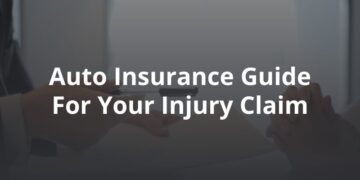After you are injured in an accident, your health is in the hands of the doctors and medical providers that treat you. Unfortunately, however, for many accident victims, these treatments come at a serious cost.
The average cost to visit the emergency room after an accident is $3,300, according to the CDC. Those expenses rise exponentially when hospitalization ensues: the average lifetime cost for a hospitalization is $57,000. Overall, more than one million Americans injured in car accidents are taken to the emergency room each year, racking up a total $18 billion in medical bills.
Unfortunately, not all of those costs are justified. Hospital bills often contain inflated costs, mislabeled treatments, and other errors that could wind up costing you more. Additionally, hospitals and other care providers will sometimes bundle treatments into one single line item, which makes it difficult to tell exactly what you’re paying for.
So how can you tell if you’ve been overbilled for medical treatment? Follow the steps below to get started.
Review All Bills
Never assume that a medical bill is correct — in fact, experts estimate that about 80 percent of medical bills contain some kind of error. And those errors can be costly. In a medical bill audit, Equifax found that medical bills totaling over $10,000 contained an average $1,300 in erroneous medical charges.
Medical bills can be difficult to read without expertise in medical billing practices, but there are a few errors that you may be able to catch through a simple review. For instance, it is not uncommon to be billed twice for the same procedure or treatment. Also keep an eye out for tests or procedures you did not have performed; some patients have been accidentally billed for procedures that were scheduled and then canceled.
Review Your Explanation of Benefits Statement
After your treatment, your health insurance carrier should send you a document called an explanation of benefits statement (EOB). This document looks like a bill, but it is actually a summary of the treatment you received, how much your insurer is paying, and what you still owe (if anything).
The EOB also warrants careful review. You should be able to see what treatment you were billed for, which provider sent in the bill, and what your insurer is covering. Check this document for double billing or anything else that doesn’t make sense to you. If you have questions about anything, you should speak to an expert.
Ask for Clarification
If something about your bill doesn’t seem right to you — or if you have questions about what you were charged for — you should call your medical provider and ask them to explain the bill. In many cases, hospitals and providers will then begin an internal audit to ensure that you were charged correctly.
Speaking with insurers about your EOB is not necessarily recommended, however — at least not until after you consult with a personal injury accident lawyer. Insurers can use your communication with them to deny or devalue coverage. Accident and injury lawyers can help you understand how to protect your rights in these situations.
Get Expert Help
If you’re still confused about your bill or your EOB, here are some resources that may be able to help.
- The Texas Department of Insurance can help you make sense of insurance coverage and can assist you if you decide to dispute a claim.
- A medical bill auditor can be enlisted to review your bills and explain charges. The nonprofit Patient Advocate Foundation offers medical auditing to patients that meet their eligibility requirements.
- A personal injury attorney can also help you review bills, and can explain charges and identify any possible errors or other issues.
Learn More About Hospital Liens
Hospitals often file liens in the county where services were provided when they believe treatment was rendered to a patient in connection with a personal injury case. Hospital liens can be scary and frequently interfere with your rights to resolve your injury claim.
While hospital liens are legal when properly used and filed, it is common for hospitals to seek to recover inflated bills that are much higher than what is reasonable or what your health insurance might have covered. With proper guidance, these liens can be fought and defeated by an injury attorney with the right experience.
Talk to an Experienced Personal Injury Accident Lawyer
For many accident victims, talking to a personal injury attorney is the best way to gain insight into medical bills and insurance coverage. Accident and injury lawyers not only have expertise with medical billing and insurance coverage, but also understand how to obtain documentation that will prove charges are legitimate. A personal injury attorney can file an appeal if necessary and advocate for your rights against insurance providers and hospital billing offices.
A good personal injury accident lawyer will also help you identify ways to afford medical bills. And most will offer a cost-free initial consultation so you can understand how best to move forward with your case.
At FVF, we offer just such a service. If you are struggling to understand medical bills after an accident, contact us today for a free case evaluation. Our accident and injury lawyers can help you make the most educated decision about your medical bills and your case in general.





